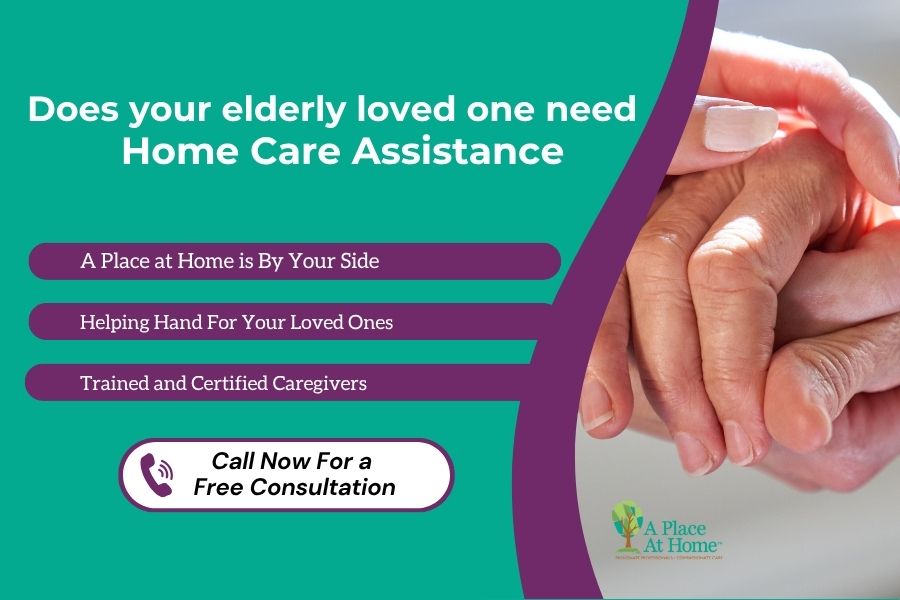There comes a moment in many families’ lives when they begin to see changes in someone they love. Perhaps Mom is starting to forget appointments. Maybe Dad has stopped cooking the meals he once enjoyed. A spouse might be struggling with balance, fatigue, or loneliness after a medical setback. These are not just changes in routine. They are signs that support can bring comfort, safety, and renewed confidence. If you’re wondering how to approach this sensitive conversation, read our guide on how to talk to your parents about needing home care.
At A Place At Home – Weston, we understand what families are going through, because we have helped many others take this same step. A free consultation is our invitation to you. It is a chance to talk openly about what life looks like today and how we can make tomorrow easier.
This first conversation is the beginning of a care partnership centered around dignity, trust, and the deep respect every older adult deserves.
Why We Offer a Free Consultation
We believe care is personal. It is not a checklist or a contract. It is a commitment to enhancing the way someone lives. Many seniors are hesitant to ask for help, worried it may take away their independence. In reality, the right care gives independence back.
During the consultation, our role is to
- Listen to your concerns and goals
- Understand your loved one as a whole person
- Identify solutions that strengthen confidence at home
- Relieve the stress already placed on family caregivers
- Offer guidance based on professional experience
- We help families move from fear and uncertainty to clarity and direction.
The relief on a daughter’s face when she learns she no longer has to manage nighttime care alone… the smile on a senior’s face when they hear they can stay in the home they love… These are the moments that remind us why we do this work.
What Really Happens During the Consultation
Our Care Coordinator visits your home, greets you warmly, and begins with a genuine conversation. We want your loved one to feel comfortable and respected right away.
Together we discuss
- How your loved one’s day unfolds
- What tasks are causing worry or challenges
- Memory support needs or signs of cognitive change
- Mobility concerns such as falls or balance issues
- Medication reminders and chronic health conditions
- Social engagement and emotional wellbeing
We look around the home with care and understanding. A dim hallway light or a slippery bathroom rug may seem small now, but these are the details that keep seniors safe.
We also focus on what your loved one enjoys. Their favorite morning routine. Their hobbies or interests. The relationships that bring them joy. Home care is not about loss. It is about protecting the life they love.
How to Schedule a Free Consultation a Free In Home Consultation With A Place at Home-Weston
A simple phone call at (954) 335-9284 is often where this begins. You can also reach out online through our contact form or connect with us through email or Facebook if that feels more comfortable.
We will ask for a few basics including the location of the home and the nature of the support you may be looking for. You do not need to have everything figured out. Many families reach out when they feel they are at a crossroads and need guidance urgently.
Once we understand your preferred date and time, we schedule the consultation around your family’s availability, including virtual participation if others want to join remotely.
How Families Can Prepare for a Home Care Consultation
Getting ready for the consultation should never feel stressful or overwhelming. Some families find it helpful to gather a few simple notes ahead of time. This allows us to build a complete understanding of your loved one’s daily life and where support would be most beneficial.
You may want to jot down
- Any recent changes in behavior, mood, or memory
- Tasks that seem physically tiring or emotionally frustrating
- Mobility challenges including falls or balance difficulties
- Details from recent hospital visits or rehabilitation stays
- Moments when you worry about your loved one being alone
- Questions about hours of care, scheduling flexibility, or cost
These notes can help guide the conversation. However, there is no “right way” to prepare. Many families share everything they need to during the visit itself. What matters most is honesty and openness about what life looks like today.
Important Questions to Ask Your Home Care Provider
Choosing care is a major decision. You deserve to feel fully informed and completely comfortable. At A Place At Home – Weston, we welcome every question because transparency is the foundation of trust.
Here are common questions families like to ask
- How are caregivers hired, trained, and supervised
- Do caregivers have experience with dementia, Parkinson’s disease, strokes, and mobility care
- Can we change or increase hours of care as needs evolve
- Can services start urgently if a hospital discharge or emergency occurs
- What if a caregiver is not the right fit socially or emotionally
- How does your team communicate updates with families and healthcare providers
Many families ask about alternative options for senior care. Our article on in-home care vs assisted living provides a detailed comparison to guide your decision. We provide thoughtful, honest answers based on years of experience supporting local families. Our goal is to empower you with knowledge, not pressure you into a commitment.
What Happens After the Home Care Consultation
Once the consultation is complete, our care team develops a personalized care plan designed specifically for your loved one. This plan outlines services clearly and includes a schedule designed around comfort, familiarity, and wellbeing.
Families appreciate that
- Pricing is fully transparent with no hidden fees
- Care plans can include a wide mix of services that change as needs change
- A caregiver is introduced based on skills, personality, shared interests, and compatibility
- Services can often begin within 24 to 48 hours if you are ready to move forward
Even after care begins, our team stays closely involved. We communicate regularly, check in with caregivers and family, and adjust services whenever necessary. Your loved one’s needs will never be overlooked or ignored.
Our Commitment to Seniors and Families in Broward County, Florida
Opening your home to caregivers takes courage. We never take that trust lightly.
A Place At Home – Weston is more than a home care service. We are your partners, your advocates, and your ongoing support. We walk beside families through challenging changes, celebrate meaningful progress, and provide comfort during uncertain times. We proudly help seniors remain where they feel safe and confident — at home — while receiving compassionate care that protects their independence and honors their identity. The free home care consultation is the first step toward relief, stability, and renewed quality of life.
If you have noticed changes in your loved one, even subtle ones, now is the perfect moment to learn about support options. Many families tell us they wish they had reached out sooner, before stress grew heavier and challenges became harder.
You do not have to carry this alone. We will help you find the right path.
Schedule Your Free Home Care Consultation Today
A Place At Home – Weston proudly supports seniors and families throughout
- Weston
- Pembroke Pines
- Hollywood
- Davie and the surrounding Broward County communities.
Whether you are planning ahead or urgently seeking help after a medical event, our care team is ready to listen, assist, and guide you forward.
Contact us today to schedule a free, no-obligation consultation and discover how professional in-home care can make daily life safer and more joyful for the person you love.




